Silencer Saturday #392: Another Week, Another Lawsuit

Good afternoon, everyone, and welcome back to TFB’s Silencer Saturday, brought to you by Yankee Hill Machine, manufacturers of the new Victra-12 shotgun suppressor. This week we are looking at another major NFA lawsuit. Suing to take apart the National Firearms Act is very hot right now.
Silencer Saturday @ TFB:
- Silencer Saturday #391: Silencer Shop Sues ATF To Dismantle The NFA
- Silencer Saturday #390: Resurrecting The Hush Puppy - Daniel Y
- Silencer Saturday #389: Can You Thread Your Own Barrel?
- Silencer Saturday #388: Suppressing The Century C-93
- Silencer Saturday #387: The Big Beautiful Bill Passed, So Now What?
Last week, we looked at the so-called “One Big Beautiful Lawsuit” brought by Silencer Shop Foundation and others. That lawsuit seeks to use the reduction of tax stamps $0 on suppressors, AOWs, SBRs, and SBSs to get them removed from the NFA entirely. A $0 tax is not truly a tax; it is just a registration with extra steps. Silencer Saturday #391 is worth a read to get the full details on that lawsuit.
Brown v. ATF
This week's lawsuit is similar, but different. Brown v. ATF is a lawsuit brought by several large organizational plaintiffs, including the National Rifle Association, Second Amendment Foundation, Firearm Policy Coalition, and American Suppressor Association. It also includes some individuals and businesses, most notably Mr. Brown, whose name the case bears.
Some brief background on US law will help the rest of this make more sense. The federal government only has enumerated powers. If the Constitution does not give the power to the federal government, then it does not have that power. This differs from states, which have plenary powers to do anything that the state constitution (or federal Constitution in many circumstances) does not prohibit. So at the state level, the state can make a law so long as it is not prohibited, while at the federal level, all laws must stem from a specific power granted to the federal government.
This is trickier than it sounds. Consider the seminal case Wickard v. Filburn, which held that a farmer growing crops on his own farm for his own consumption was interstate commerce, and thus subject to federal regulation. That sounds so obviously wrong on the surface, but the actual analysis from the court was based on the net economic impact if every farmer did the same thing. If they could all ignore the federal quota limits for personal use, it would impact the market as a whole. Whether or not you agree with that holding, the rationale makes some sense.
That case matters because interstate commerce is one of the key enumerated rights of the federal government. It makes sense to have the feds control dealings that cross state lines rather than the individual states engaged in that trade. But cases like Wickard expanded the definition of interstate commerce to be pretty much any economic activity.
The Brown case notes that there is no interstate commerce provision in the NFA. It applies to all such firearms in the United States, not just those that traveled in interstate commerce. Accordingly, that is off the table as an enumerated power that could justify the NFA, leaving taxation as the only enumerated power that could apply.
This case also brings in the important second amendment precedent in Bruin. Bruin held that arms are protected by the Second Amendment unless there is a showing of a historically-similar restriction. “Arms” is broader than just a firearm, and includes “instruments that facilitate armed self-defense.” The Brown case argues that silencers and SBRs both fall into that category. That’s right, one major distinction is that this case only seeks to remove NFA restrictions from silencers and short barrel rifles.
In contrast, the SSF lawsuit includes SBSs and AOWs as well. While I am not privy to anything more than the publicly complaint documents, I would guess this distinction is because the argument that SBSs and AOWs are “in common use” is much weaker than SBRs and silencers. The “common use” standard flows from Bruen as well.
The lawsuits were also filed in different circuits. In the federal courts, appeals go to the circuit court level before (sometimes) moving up to the Supreme Court. Circuits cover blocks of states and hear all of the appeals in those states. The SSF case was filed in Texas and will move up to the 5th Circuit if it is appealed. The Brown case was filed in Missouri and would go to the 8th Circuit if appealed. This is another way that the lawsuits work together; if both are appealed up but reach different conclusions (if one strikes down the NFA provisions but the other doesn’t) it could lead to a “circuit split.” If circuits disagree on a constitutional issue, the Supreme Court is more likely to grant the appeal.
To use a food analogy, the Silencer Shop Foundation lawsuit is a nice steak. It's simple. It's great. It is easy to appreciate. The Brown case is more like sushi. It has more layers and complexity, and some of the nuance may not be appreciated on the first tasting. Even if sushi may not be to your liking, if you are a silencer person, you should be excited about both lawsuits. They each stand to make it easier to enjoy suppressors.
The full complaint is available from FPC here and is worth a read if you found this interesting.
SILENCER SHOP – HANSOHN BROTHERS – DEADEYE GUNS
MAC TACTICAL
ALL YHM PRODUCTS AT BROWNELLS
DEALERS: If you want your link to buy YHM suppressors included in future Silencer Saturday posts, email: silencers@thefirearmblog.com

AKA @fromtheguncounter on Instagram. Gun nerd, reloader, attorney, and mediocre hunter.
More by Daniel Y






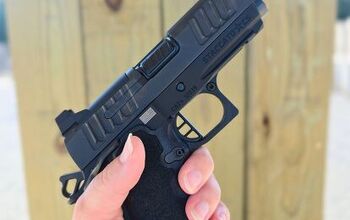
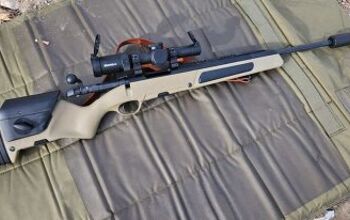
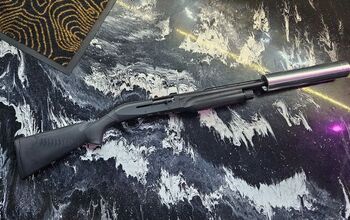

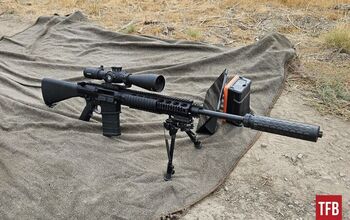
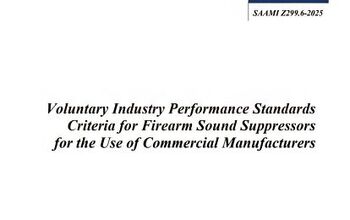


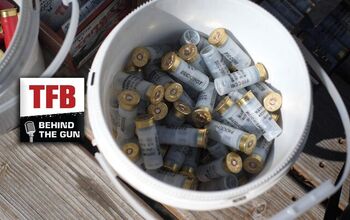
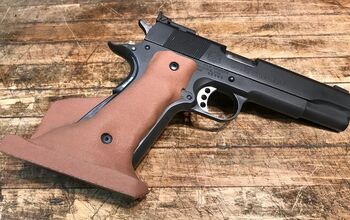



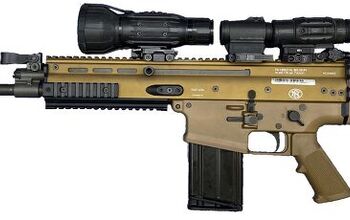

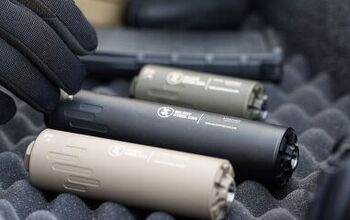
Comments
Join the conversation
Wickard v. Filburn was also the reason all those yellow-fringers were daft to get excited about the idea of states passing laws that NFA items were legal without federal registration as long as they never left the state.